Posted on 12/22/2021
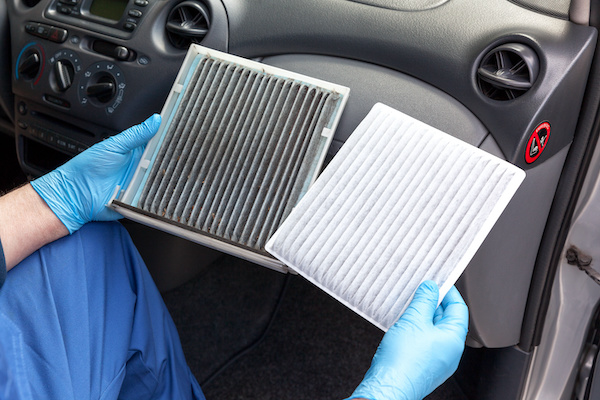
If you're not a mechanic, you may not even know you have a cabin filter. But all vehicles have one. Cabin filters filter out air, smoke, dust, and much more. Read on to see why you should change your cabin filters on a regular basis. What happens if you don't replace cabin air filters? It can be dangerous if the cabin filter isn't changed when it needs to be. The following below tells you what happens if the cabin filter doesn't get changed: Health Issues The cabin filter makes sure the air is safe to breathe, and that means keeping out pollutants. If the filter is clogged or even dirty, that's when breathing can be an issue, especially if you have asthma or other health issues. It's a good idea to check the cabin filter and get it replaced at least once a year to avoid health problems altogether. Windows Fog Breathing can make the windows fog if it's too warm in the car, but usually the cabin air filter helps reduce the condens ... read more
Posted on 11/29/2021

Over 100 million Americans are expected to travel (over 50 miles) on the road for the holiday season. With such a large number of people out on the road at once, traffic congestion is inevitable. To ensure you and your loved ones arrive at your destination safely, you need to do some pre-planning beforehand. Here are Folsom Automotive Service LLC's holiday travel tips! Tip #1 - Get a pre-trip inspection Before you embark on your journey, please take your car to our shop. Our certified team of technicians can assist you with the following: Measure tire pressure and tread depth Inspect and replace wiper blades Refill windshield washer fluid Test your vehicle battery and More! Tip #2 - Pack an emergency kit You'll need the following items: Jackets, hats, and blankets Flashlights with new batteries Warning flares or triangles Paper towels Drinking water and non-perishable snack bars Basic tools Spare tire Jumper cables First aid kit Phone charger Tip #3 - Av ... read more
Posted on 10/25/2021
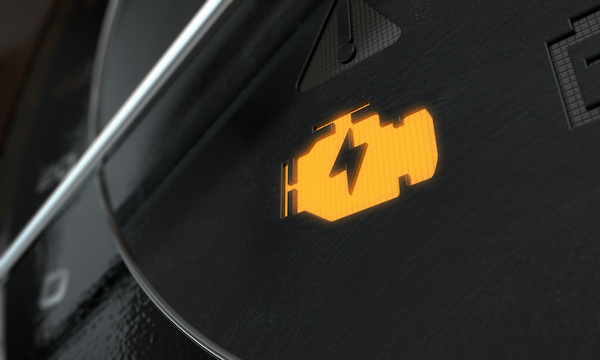
The yellow outlined symbol of an engine is most drivers' biggest nightmare. It means that your car is in trouble, and it usually requires you to take your vehicle to the repair shop. Let's take a look at the top 5 common causes that will trigger your check engine light: Catalytic Converter Out of the five problems we are going to talk about, this one is the most dreaded. The reason for that is because it can be costly to replace the catalytic converter, and your vehicle needs it. The catalytic converter is a portion of your car's exhaust system known for its chemical converting capabilities. If you notice a rotten egg odor along with the check engine light, the cat is probably the problem. Loose Gas Cap If you happened to forget to screw on your gas cap last time you filled up your car, SUV, or truck, then it will cause your check engine light to come on. If there's a gap for any other reason, such as a damaged cap, please have it replaced as soon as possible. Mass ... read more
Posted on 9/28/2021
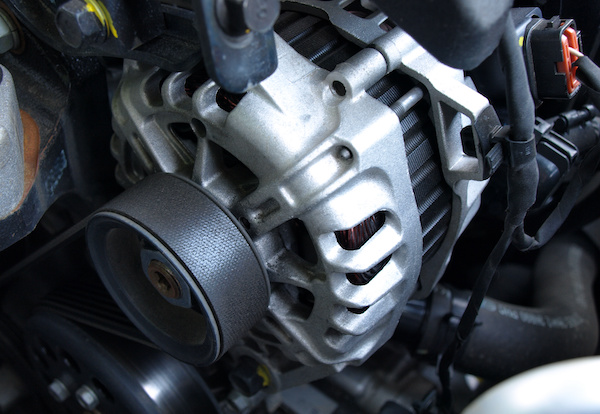
Your vehicle's alternator is a machine that charges and replenishes the vehicle battery. Similar to having to replace your battery eventually, you're going to have to get a new alternator too. You will start to notice various warning signs when an alternator is on its last leg. If you pay attention to these indications and head to a mechanic beforehand, you're less likely to become stranded down the road. One obvious sign that you need alternator repair is if your vehicle suddenly becomes tough to start. Another symptom that you may need a new alternator is when your accessory lights become dim. Accessory lighting includes the ones on your dashboard, dome light, headlights, and clock/radio. If they dim or malfunction when starting up or accelerating your vehicle, your alternator may be pushing its limits. Any unusual noises coming from under the hood can also signify that you are experiencing alternator issues. A whining sound can be t ... read more
Posted on 8/27/2021
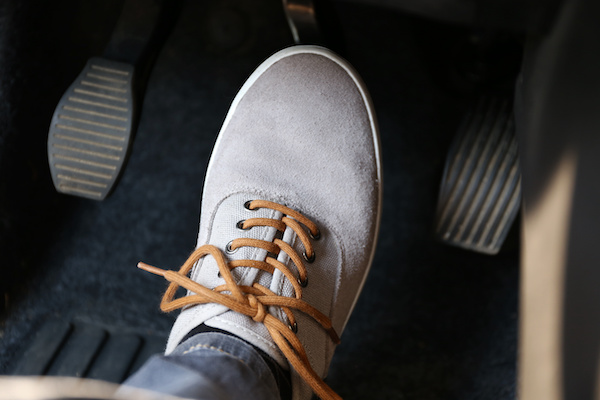
Nothing is more annoying than a loud squeal whenever you push on your brake pedals. Beyond the ear-piercing noise, you should take the sound seriously as it could mean trouble for your braking system. As you may know, brakes are a vital part of every vehicle, but they can be a safety hazard without proper maintenance. There are a few circumstances where brake noises can be normal. You can expect brake sounds when they are not warm, newly replaced, used in wet weather, or rough road conditions. However, the noises should not linger beyond those scenarios. Let's examine some of the common causes behind squeaky brakes: Worn Pads Worn-out brake pads are the leading cause of squealing brake sounds. The sound should be taken as a warning to replace the pads before they cause damage to the rotor. Slamming On the Brakes Too Hard While driving, you may face many obstacles unexpectedly. For instance, you may have to dodge another vehicle or other dangerous ... read more
Posted on 7/26/2021

When you purchase something new or expensive, you are likely to get a strong urge to care for the item. To take care of such a significant investment, like your car, you need to read the manufacturer's manual. The owner's manual will ensure that you know how to maintain your new ride and how to keep it running in good shape for years to come. The pages contain everything you may need to know about the car and the scheduled maintenance routines you need to stick to for the car's extended longevity. Proper Vehicle Maintenance Your vehicle's owner's handbook is a guide listing how much maintenance is needed to ensure it delivers the desired performance and durability. The manual also specifies the repair techniques for proper auto care. After reading it, you'd be able to interpret the warning lights and when you need fluid changes and flushes. Knowing Your Car There's more to a car than its brand name and model. All vehicles are machi ... read more
Posted on 6/24/2021
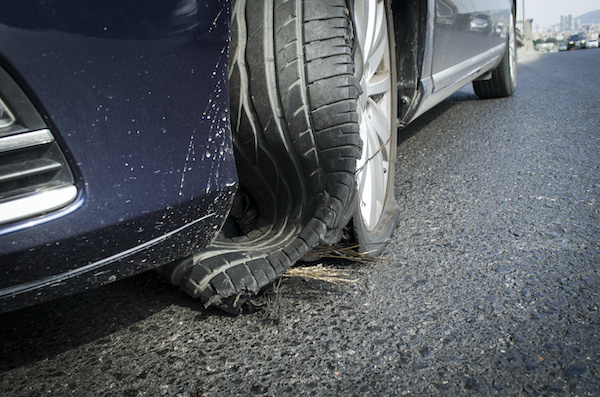
A car tire blowout is one of the most dreaded and potentially dangerous things on the road. It's even worse when you are a new or inexperienced driver as it can make you panic, ultimately losing control of your car. Based on the National Highway Traffic Safety Administration reports, tire blowouts are responsible for over 75,000 road accidents killing over 400 drivers. Well, before these numbers get you all terrified, you should understand that a tire blowout does not always mean impending danger. How you react the first few seconds after the incident makes all the difference. So How Do You Handle a Tire Blowout? Stay Calm and Do Not Hit the Brakes The first best thing you can do during a car blowout is staying still and doing nothing at all. Do not hit the brakes, turn the steering wheel or even remove your foot from the gas pedal. Taking any of this action will make you lose control, making things worse. Tightly Grip the Steering Wheel and Steer Straight Once your tire blow ... read more
Posted on 5/26/2021
.jpeg)
Picking out the "5 best" emergency kit items is difficult because in most cases, a stranded driver might need everything in the kit. Nonetheless, there are a few mainstays that should take priority if necessary. Here are five suggestions. Jumper Cables Almost every driver at some point has a dead battery. Most have a few during their entire driving careers. Yet, it is amazing how many people with dead batteries do not have a good pair of jumper cables. Reflectors Each year, in just about every state in America, someone is involved in an accident when standing near their broken-down vehicle. In many cases, the driver that causes the accident was not paying enough attention and did not see the vehicle on the shoulder of the road. One way of reducing that chance is to have adequate roadside reflectors and/or flares to alert people of your presence and vehicle. This is also a good way of signaling that you need help. Blanket A blanket might not have anything to do with th ... read more
Posted on 4/26/2021

Getting your car prepared for spring should be a top priority for all. With the summer months fast approaching, you need to take time out of your schedule to have your car primed and ready to go. After a season of colder weather, it's time to pamper your vehicle with some springtime care. The first order of business is getting your oil changed. Oil is the primary lubricant that keeps your engine and its parts running well. It also protects your engine and keeps it clean. With that in mind, it's important to have both your oil and the filter changed at the same time once every 3,000 miles. An inspection of your battery should also be done. It is the one item that keeps your car running at an optimal level during the winter months. It keeps your heater and your lights on as you drive more in the dark during a season of shorter days and longer nights. Plus, it's quite possible that your battery may have had to work a lot harder just to get started. The cold weather has an im ... read more
Posted on 3/17/2021
.jpeg)
As a responsible motorist, you need to understand the functions of various parts of your engine so you can keep yourself and your passengers safe on the roads. One basic system you need to understand is the exhaust system, the part of the engine that eliminates harmful byproducts from your car. As the engine functions, it produces a lot of noise that needs to be reduced. That's where the mufflers come in. Without the mufflers, the engine would be too loud and uncomfortable. Simply put, the exhaust is that part of the engine that eliminates unwanted byproducts from the engine and controls the gas output, while mufflers act as silencers. Let's dig deeper into the difference between an exhaust and a muffler. The Exhaust Consider the exhaust system as the gas-controlling part of your car's engine. This system comprises components and piping that guide the gases the combustion process in the engine produces. When fuel burns, toxic gases are produced. If these gases were to b ... read more